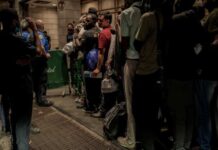
A federal judge in Illinois has struck down a controversial portion of a state abortion law, ruling it unconstitutional to force pro-life medical professionals to promote abortion against their conscience. The decision marks a critical win for pro-life pregnancy centers in the ongoing legal fight over free speech and religious liberty.
The lawsuit, filed by the National Institute of Family and Life Advocates (NIFLA) and three pro-life pregnancy centers, targeted provisions within the Illinois Health Care Right of Conscience Act. The plaintiffs argued the law compelled them to discuss abortion—something they fundamentally oppose—as a condition of operating without legal liability.
In his ruling issued Friday, U.S. District Court Judge Iain D. Johnston sided with the pro-life centers on a core aspect of their complaint. He found that requiring them to discuss the “benefits and risks” of both childbirth and abortion in exchange for legal protections amounts to compelled speech—a violation of the First Amendment.
“The Court concludes that Public Act 99-690 Section 6.1(1), in exchange for a liability shield, compels speech,” Johnston wrote. “That compelled discussion violates the First Amendment.”
However, Johnston upheld a separate provision of the law that mandates providers—if directly asked by a patient—to refer or provide information about where abortion services can be obtained. While the plaintiffs objected to this too, Johnston determined that the state has a legitimate interest in ensuring access to services and reducing so-called “self-managed” abortions.
“Requiring the plaintiffs to provide the requested information is a rational means of meeting that goal,” Johnston wrote, clarifying that the act of responding when prompted is different from mandating a proactive endorsement.
This split decision prompted celebration and concern from both sides of the political divide.
The Alliance Defending Freedom (ADF), which represented the pro-life plaintiffs during the 2023 bench trial, praised the judge’s recognition of First Amendment protections.
“No one should be forced to express a message that violates their convictions,” said ADF Senior Counsel Kevin Theriot. “The court was right to protect pregnancy centers’ freedom to advocate that life is a human right.”
ADF attorneys emphasized that the state should not weaponize the law to force doctors and counselors to undermine their own life-affirming missions.
The Thomas More Society, another prominent pro-life legal group, expressed its disappointment that the court did not strike down the law in its entirety. Vice President and head of litigation Peter Breen announced plans to appeal the decision to the U.S. Court of Appeals for the 7th Circuit.
“Forcing pro-life doctors and pregnancy centers to facilitate abortion unconstitutionally burdens their faith and conscience,” Breen said. “Thomas More Society will keep fighting to protect our heroic pro-life ministries. The fight is far from over.”
Illinois remains one of the most abortion-friendly states in the nation, and state leaders have routinely championed access to the procedure, even as many red states have moved in the opposite direction following the Supreme Court’s 2022 reversal of Roe v. Wade. This ruling adds to the mounting legal tension between conservative and progressive states as the post-Roe legal framework continues to evolve.
Critics of the Illinois law argue that forcing pro-life centers to cooperate with abortion in any capacity infringes upon deeply held religious beliefs and sets a dangerous precedent for government overreach in the medical field.
Supporters, however, claim the state has a duty to ensure patients are aware of all legal medical options, regardless of a provider’s personal beliefs.
Judge Johnston’s ruling is a reminder that constitutional rights do not vanish in the context of controversial social issues. As the case now likely moves to the appellate level, the nation’s courts will continue to be the battleground for the future of conscience rights, free speech, and the ability of pro-life Americans to stand firm in their convictions.












